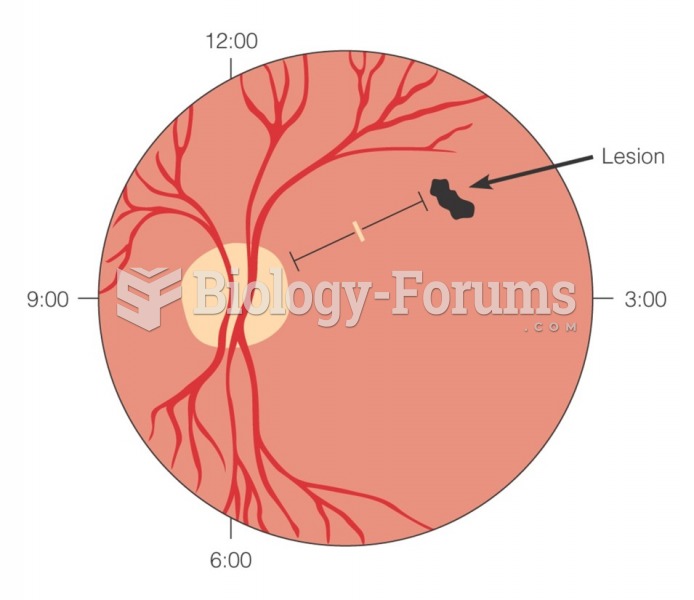|
|
|
HIV testing reach is still limited. An estimated 40% of people with HIV (more than 14 million) remain undiagnosed and do not know their infection status.
A headache when you wake up in the morning is indicative of sinusitis. Other symptoms of sinusitis can include fever, weakness, tiredness, a cough that may be more severe at night, and a runny nose or nasal congestion.
Normal urine is sterile. It contains fluids, salts, and waste products. It is free of bacteria, viruses, and fungi.
Children with strabismus (crossed eyes) can be treated. They are not able to outgrow this condition on their own, but with help, it can be more easily corrected at a younger age. It is important for infants to have eye examinations as early as possible in their development and then another at age 2 years.
All adults should have their cholesterol levels checked once every 5 years. During 2009–2010, 69.4% of Americans age 20 and older reported having their cholesterol checked within the last five years.
 Vasectomy. (a) Vas deferens is located within the spermatic cord on both sides. (b) A small incision
Vasectomy. (a) Vas deferens is located within the spermatic cord on both sides. (b) A small incision
 Students rated their grandparents on a scale from 1 to 4 based on emotional closeness, time spent ...
Students rated their grandparents on a scale from 1 to 4 based on emotional closeness, time spent ...





